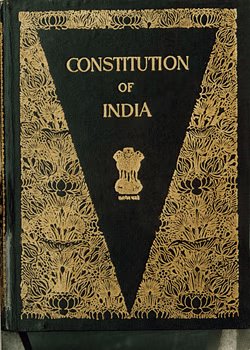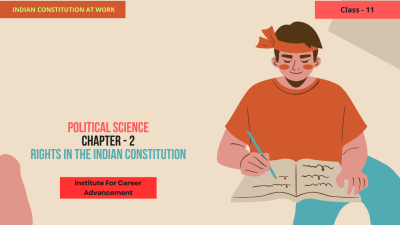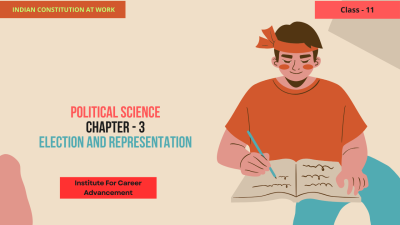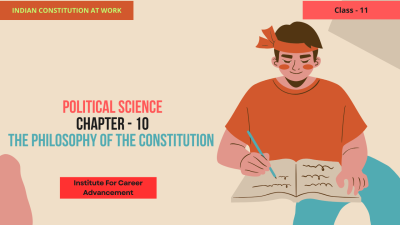Political Theory: An Introduction - Class 11
 Compare
Compare
Political Theory: An Introduction is a foundational course that explores the fundamental concepts, ideas, and thinkers that have shaped our understanding of politics and government. It provides a framework for analyzing and evaluating political systems, ideologies, and events.
Key areas covered in Political Theory:
Political concepts: Key terms and ideas such as power, authority, legitimacy, justice, equality, and liberty.
Political ideologies: Different schools of thought such as liberalism, conservatism, socialism, and communism.
Political thinkers: Major political philosophers like Plato, Aristotle, Machiavelli, Hobbes, Locke, Rousseau, Marx, and Mill.
Political systems: Different forms of government such as democracy, monarchy, aristocracy, and dictatorship.
Political processes: Elections, voting, representation, and participation.
Political issues: Current political debates and challenges such as globalization, inequality, and climate change.
Importance of studying Political Theory:
Understanding political concepts: It helps to clarify and define key political terms and ideas.
Analyzing political systems: It provides a framework for understanding and evaluating different forms of government.
Evaluating political ideologies: It helps to compare and contrast different schools of thought and their implications.
Understanding political thinkers: It introduces students to the ideas of major political philosophers and their contributions to political thought.
Engaging in political discourse: It equips students with the knowledge and skills to participate in political debates and discussions.
Developing critical thinking: It encourages students to think critically about political issues and challenge conventional wisdom.
By studying Political Theory, students gain a deeper understanding of the political world and develop the skills to become informed and engaged citizens.
রাজনৈতিক তত্ত্বঃ একটি ভূমিকা হল একটি মৌলিক কোর্স যা মৌলিক ধারণা, ধারণা এবং চিন্তাবিদদের অন্বেষণ করে যা রাজনীতি এবং সরকার সম্পর্কে আমাদের বোধগম্যতাকে রূপ দিয়েছে। এটি রাজনৈতিক ব্যবস্থা, মতাদর্শ এবং ঘটনাবলী বিশ্লেষণ ও মূল্যায়নের জন্য একটি কাঠামো প্রদান করে।
রাজনৈতিক তত্ত্বের অন্তর্ভুক্ত মূল ক্ষেত্রগুলিঃ
রাজনৈতিক ধারণাঃ ক্ষমতা, কর্তৃত্ব, বৈধতা, ন্যায়বিচার, সমতা এবং স্বাধীনতার মতো মূল শর্তাবলী এবং ধারণাগুলি।
রাজনৈতিক মতাদর্শঃ উদারনীতিবাদ, রক্ষণশীলতাবাদ, সমাজতন্ত্র এবং সাম্যবাদের মতো বিভিন্ন চিন্তাধারা।
রাজনৈতিক চিন্তাবিদঃ প্লেটো, অ্যারিস্টটল, ম্যাকিয়াভেলি, হবস, লক, রুশো, মার্কস এবং মিলের মতো প্রধান রাজনৈতিক দার্শনিক।
রাজনৈতিক ব্যবস্থাঃ গণতন্ত্র, রাজতন্ত্র, অভিজাততন্ত্র এবং একনায়কতন্ত্রের মতো সরকারের বিভিন্ন রূপ।
রাজনৈতিক প্রক্রিয়াঃ নির্বাচন, ভোটদান, প্রতিনিধিত্ব এবং অংশগ্রহণ।
রাজনৈতিক বিষয়ঃ বর্তমান রাজনৈতিক বিতর্ক এবং বিশ্বায়ন, অসমতা এবং জলবায়ু পরিবর্তনের মতো চ্যালেঞ্জ।
রাজনৈতিক তত্ত্ব অধ্যয়নের গুরুত্বঃ
রাজনৈতিক ধারণাগুলি বোঝাঃ এটি মূল রাজনৈতিক পদ এবং ধারণাগুলি স্পষ্ট করতে এবং সংজ্ঞায়িত করতে সহায়তা করে।
রাজনৈতিক ব্যবস্থা বিশ্লেষণঃ এটি সরকারের বিভিন্ন রূপ বোঝার এবং মূল্যায়নের জন্য একটি কাঠামো প্রদান করে।
রাজনৈতিক মতাদর্শের মূল্যায়নঃ এটি বিভিন্ন চিন্তাধারা এবং তাদের প্রভাবগুলির তুলনা এবং বৈপরীত্য করতে সহায়তা করে।
রাজনৈতিক চিন্তাবিদদের বোঝাঃ এটি শিক্ষার্থীদের প্রধান রাজনৈতিক দার্শনিকদের ধারণা এবং রাজনৈতিক চিন্তায় তাদের অবদানের সাথে পরিচয় করিয়ে দেয়।
রাজনৈতিক আলোচনায় অংশগ্রহণঃ এটি শিক্ষার্থীদের রাজনৈতিক বিতর্ক ও আলোচনায় অংশগ্রহণের জন্য জ্ঞান ও দক্ষতার সাথে সজ্জিত করে।
সমালোচনামূলক চিন্তাভাবনা গড়ে তোলাঃ এটি শিক্ষার্থীদের রাজনৈতিক বিষয়গুলি নিয়ে সমালোচনামূলকভাবে চিন্তা করতে এবং প্রচলিত প্রজ্ঞাকে চ্যালেঞ্জ জানাতে উৎসাহিত করে।
রাজনৈতিক তত্ত্ব অধ্যয়নের মাধ্যমে, শিক্ষার্থীরা রাজনৈতিক জগতের গভীরতর বোধগম্যতা অর্জন করে এবং জ্ঞাত ও নিযুক্ত নাগরিক হওয়ার দক্ষতা বিকাশ করে।



















